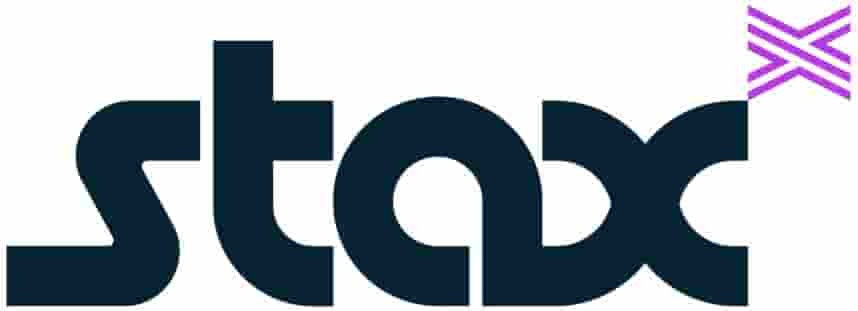Many or all of the products on this page are from partners who compensate us when you click to or take an action on their website, but this does not influence our evaluations or ratings. Our opinions are our own.
Sponsored partner picks for
| Product | Best for | NerdWallet rating | Payment processing fees | Monthly fee | Learn more |
|---|---|---|---|---|---|
| | Interchange-plus pricing | In-person: 0.4% + $0.08 Online: 0.5% + $0.25 Plus interchange | $0 | on Helcim's website | |
| | Businesses with high transaction volumes | In-person: 0% + $0.08 Online: 0% + $0.15 Plus interchange | $99 and up. | on Stax's website | |
| | Online website builder | In-person: 2.6% + $0.10 Online: 2.9% + $0.30 | $39 Basic plan; $105 Shopify plan; $399 Advanced plan. | on Shopify's website | |
| | Payment gateway only | 2.9% + $0.30 for All-in-One option. | $25 | ||
| | Brick-and-mortar businesses expanding online | In-person: 2.29% + $0.09 Online: 2.99% + $0.49 | $0 | ||
| | Large omnichannel businesses | 0.6% + $0.13 Plus interchange for Visa and Mastercard; 3.3% + $0.23 for AmEx. | $0 | ||
| | Chase business account holders | 2.9% + $0.25 | $0 | ||
| | Payment gateway plus merchant account | 2.89% + $0.29 credit & debit cards and digital wallets; 3.49% + 49¢ Venmo (U.S. only). | $0 |
Helcim
Best for Interchange-plus pricing
Online: 0.5% + $0.25
Plus interchange
on Helcim's website
Pros
- Businesses save when customers use cards with low interchange rates.
- Offers free POS software.
- Offers volume-based discounts automatically.
- No termination fees, long-term contracts or PCI compliance fees.
Cons
- Deposits may take up to two business days; same-day deposit option is not available.
- Interchange-plus costs can be difficult to predict.
Stax
Best for Businesses with high transaction volumes
Online: 0% + $0.15
Plus interchange
and up.
on Stax's website
Pros
- Businesses save when customers use cards with low interchange rates.
- Unique add-on features, like custom branding.
- No long-term contracts.
- Compatible with POS system providers, such as Clover.
Cons
- Not ideal for businesses with low-volume sales.
- Interchange-plus costs can be difficult to predict.
- Accounting integrations may cost extra.
- Charges $10 PCI compliance fee each month.
Shopify Payments
Best for Online website builder
Online: 2.9% + $0.30
Basic plan; $105 Shopify plan; $399 Advanced plan.
on Shopify's website
Pros
- Hundreds of e-commerce website templates available.
- Can customize checkout page.
- Higher-tier plans offer less expensive online processing rates (as low as 2.5% plus 30 cents).
- No long-term contracts.
Cons
- Phone support only available for Plus and Retail plan subscribers.
- Monthly POS subscription costs can be expensive.
Authorize.net
Best for Payment gateway only
for All-in-One option.
Pros
- You can use Authorize.net with a wide range of merchant account providers.
- Transparent, flat-rate pricing.
- No contracts or early termination fees.
- 24/7 customer support through phone, chat or online form.
Cons
- You’ll pay a $25 monthly fee regardless of usage.
- Authorize.net doesn’t have a robust point-of-sale system for in-person transactions.
- Signing up directly through Authorize.net may be more expensive than going through your merchant services provider.
- Merchant account isn’t directly with Authorize.net.
PayPal POS
Best for Brick-and-mortar businesses expanding online
Online: 2.99% + $0.49
Pros
- No long-term contract or termination fees.
- Accepts a variety of payment types, including Venmo and PayPal payments.
- Inexpensive card reader with a keypad, plus built-in payment processing and a free mobile app lets you quickly accept in-person payments on the go.
- Low in-person processing fees for a flat-rate processor.
Cons
- Online payment processing rates can be difficult to navigate.
- Limited accounting and payroll integrations.
- Deposits may take up to 3 days.
Adyen
Best for Large omnichannel businesses
Plus interchange for Visa and Mastercard; 3.3% + $0.23 for AmEx.
Pros
- No monthly subscription or termination fees.
- Consolidate data across multiple online and in-person sales channels.
- Global payment options available.
Cons
- Pricing models differ by card, which can be confusing.
- No accounting integrations.
- Must give at least two months’ notice before terminating contract.
- Must reach out for hardware costs.
PayPal Enterprise Payments
Best for Payment gateway plus merchant account
credit & debit cards and digital wallets; 3.49% + 49¢ Venmo (U.S. only).
Pros
- No contracts or early termination fees.
- No monthly subscription costs or PCI compliance fees.
- Accepts PayPal and Venmo in addition to credit and debit cards.
- Simple checkout page that looks good on web and mobile.
Cons
- Requires web development.
- Not suited for brick and mortar stores.
- No phone support.
- Default
- NerdWallet rating (High to Low)
- Monthly fee (Low to High)
Online: 0.5% + $0.25
Plus interchange
on Helcim's website
Pros
- Businesses save when customers use cards with low interchange rates.
- Offers free POS software.
- Offers volume-based discounts automatically.
- No termination fees, long-term contracts or PCI compliance fees.
Cons
- Deposits may take up to two business days; same-day deposit option is not available.
- Interchange-plus costs can be difficult to predict.
Helcim
Best for Interchange-plus pricing
Best for Interchange-plus pricing
Online: 0.5% + $0.25
Plus interchange
on Helcim's website
Pros
- Businesses save when customers use cards with low interchange rates.
- Offers free POS software.
- Offers volume-based discounts automatically.
- No termination fees, long-term contracts or PCI compliance fees.
Cons
- Deposits may take up to two business days; same-day deposit option is not available.
- Interchange-plus costs can be difficult to predict.
Online: 0% + $0.15
Plus interchange
and up.
on Stax's website
Pros
- Businesses save when customers use cards with low interchange rates.
- Unique add-on features, like custom branding.
- No long-term contracts.
- Compatible with POS system providers, such as Clover.
Cons
- Not ideal for businesses with low-volume sales.
- Interchange-plus costs can be difficult to predict.
- Accounting integrations may cost extra.
- Charges $10 PCI compliance fee each month.
Stax
Best for Businesses with high transaction volumes
Best for Businesses with high transaction volumes
Online: 0% + $0.15
Plus interchange
and up.
on Stax's website
Pros
- Businesses save when customers use cards with low interchange rates.
- Unique add-on features, like custom branding.
- No long-term contracts.
- Compatible with POS system providers, such as Clover.
Cons
- Not ideal for businesses with low-volume sales.
- Interchange-plus costs can be difficult to predict.
- Accounting integrations may cost extra.
- Charges $10 PCI compliance fee each month.
Online: 2.9% + $0.30
Basic plan; $105 Shopify plan; $399 Advanced plan.
on Shopify's website
Pros
- Hundreds of e-commerce website templates available.
- Can customize checkout page.
- Higher-tier plans offer less expensive online processing rates (as low as 2.5% plus 30 cents).
- No long-term contracts.
Cons
- Phone support only available for Plus and Retail plan subscribers.
- Monthly POS subscription costs can be expensive.
Shopify Payments
Best for Online website builder
Best for Online website builder
Online: 2.9% + $0.30
Basic plan; $105 Shopify plan; $399 Advanced plan.
on Shopify's website
Pros
- Hundreds of e-commerce website templates available.
- Can customize checkout page.
- Higher-tier plans offer less expensive online processing rates (as low as 2.5% plus 30 cents).
- No long-term contracts.
Cons
- Phone support only available for Plus and Retail plan subscribers.
- Monthly POS subscription costs can be expensive.
Pros
- You can use Authorize.net with a wide range of merchant account providers.
- Transparent, flat-rate pricing.
- No contracts or early termination fees.
- 24/7 customer support through phone, chat or online form.
Cons
- You’ll pay a $25 monthly fee regardless of usage.
- Authorize.net doesn’t have a robust point-of-sale system for in-person transactions.
- Signing up directly through Authorize.net may be more expensive than going through your merchant services provider.
- Merchant account isn’t directly with Authorize.net.
Authorize.net
Best for Payment gateway only
Best for Payment gateway only
for All-in-One option.
Pros
- You can use Authorize.net with a wide range of merchant account providers.
- Transparent, flat-rate pricing.
- No contracts or early termination fees.
- 24/7 customer support through phone, chat or online form.
Cons
- You’ll pay a $25 monthly fee regardless of usage.
- Authorize.net doesn’t have a robust point-of-sale system for in-person transactions.
- Signing up directly through Authorize.net may be more expensive than going through your merchant services provider.
- Merchant account isn’t directly with Authorize.net.
Pros
- No long-term contract or termination fees.
- Accepts a variety of payment types, including Venmo and PayPal payments.
- Inexpensive card reader with a keypad, plus built-in payment processing and a free mobile app lets you quickly accept in-person payments on the go.
- Low in-person processing fees for a flat-rate processor.
Cons
- Online payment processing rates can be difficult to navigate.
- Limited accounting and payroll integrations.
- Deposits may take up to 3 days.
PayPal POS
Best for Brick-and-mortar businesses expanding online
Best for Brick-and-mortar businesses expanding online
Online: 2.99% + $0.49
Pros
- No long-term contract or termination fees.
- Accepts a variety of payment types, including Venmo and PayPal payments.
- Inexpensive card reader with a keypad, plus built-in payment processing and a free mobile app lets you quickly accept in-person payments on the go.
- Low in-person processing fees for a flat-rate processor.
Cons
- Online payment processing rates can be difficult to navigate.
- Limited accounting and payroll integrations.
- Deposits may take up to 3 days.
Plus interchange for Visa and Mastercard; 3.3% + $0.23 for AmEx.
Pros
- No monthly subscription or termination fees.
- Consolidate data across multiple online and in-person sales channels.
- Global payment options available.
Cons
- Pricing models differ by card, which can be confusing.
- No accounting integrations.
- Must give at least two months’ notice before terminating contract.
- Must reach out for hardware costs.
Adyen
Best for Large omnichannel businesses
Best for Large omnichannel businesses
Plus interchange for Visa and Mastercard; 3.3% + $0.23 for AmEx.
Pros
- No monthly subscription or termination fees.
- Consolidate data across multiple online and in-person sales channels.
- Global payment options available.
Cons
- Pricing models differ by card, which can be confusing.
- No accounting integrations.
- Must give at least two months’ notice before terminating contract.
- Must reach out for hardware costs.
WePay
Best for Chase business account holders
Best for Chase business account holders
Pros
- Chase business customers benefit from same-day deposits.
- Customizability.
Cons
- Must use a WePay platform partner to sign up for WePay account.
- Platform partners may add markup fees.
credit & debit cards and digital wallets; 3.49% + 49¢ Venmo (U.S. only).
Pros
- No contracts or early termination fees.
- No monthly subscription costs or PCI compliance fees.
- Accepts PayPal and Venmo in addition to credit and debit cards.
- Simple checkout page that looks good on web and mobile.
Cons
- Requires web development.
- Not suited for brick and mortar stores.
- No phone support.
PayPal Enterprise Payments
Best for Payment gateway plus merchant account
Best for Payment gateway plus merchant account
credit & debit cards and digital wallets; 3.49% + 49¢ Venmo (U.S. only).
Pros
- No contracts or early termination fees.
- No monthly subscription costs or PCI compliance fees.
- Accepts PayPal and Venmo in addition to credit and debit cards.
- Simple checkout page that looks good on web and mobile.
Cons
- Requires web development.
- Not suited for brick and mortar stores.
- No phone support.
Jump to
Our picks for the best Stripe competitor
Square
- $0 for Square Free plan.
- $49 for Square Plus plan.
- $149 for Square Premium plans.
- 2.6% plus 15 cents for in-person transactions with Free plan.
- 3.3% plus 30 cents for online transactions with Free plan.
- 2.5% plus 15 cents for in-person transactions with Plus plan.
- 2.4% plus 15 cents for in-person transaction with Premium plan.
- 2.9% plus 30 cents for online transactions with Plus and Premium plans.
- 3.5% plus 15 cents for manually keyed transactions.
- $0 for Square magstripe-only card reader ($10 for each additional reader) or if using Tap to Pay for iPhone (iPhone not included).
- $59 for Square Reader contactless and chip card reader.
- $149 for Square Stand iPad POS or Square Stand Mount (iPad not included; monthly financing available).
- $149 for Square Kiosk for self-serve ordering.
- $299 for Square Terminal mobile card reader with built-in printer (monthly financing available).
- $399 for Square Handheld portable POS system with built-in barcode scanner (monthly financing available).
- $799-$899 for Square Register two-screen system (monthly financing available).
- $1,189 and up for Square Register hardware kit with cash drawer and printer.
PayPal POS
- 2.29% plus 9 cents for in-person and QR code transactions.
- 3.49% plus 9 cents for manual-entry card transactions.
- 2.99% plus 49 cents for invoicing (payment made with card) and PayPal Checkout online payments.
- 3.49% plus 49 cents for invoicing (payment made with PayPal).
- $29 for first card reader; additional readers cost $79. Price includes USB cable.
- $199 for terminal only.
- $239 for terminal with barcode scanner built in.
- $229 for Store Kit Mini (tablet stand with card reader and dock).
- $339 for Store Kit Portable kit with mobile card reader and printer.
- $479 for Store Kit Standard (tablet stand, card reader, dock and printer).
- $699 for Store Kit Plus (adds barcode scanner).
Adyen
- Interchange plus 0.60% and 13 cents per transaction for Visa and Mastercard.
- 3.3% plus 23 cents for American Express.
- 3%-12% plus 13 cents for other payment methods, depending on transaction type.
- 40 cents per transaction for ACH direct payment.
Helcim
- Interchange plus 0.4% and 8 cents per in-person transaction (if $50,000 or less in monthly card transactions).
- An additional 10 cents per Tap to Pay transaction.
- Interchange plus 0.5% and 25 cents per online or manually keyed transaction (if $50,000 or less in monthly card transactions).
- 0.5% plus 25 cents for ACH payments (capped at $6 for transactions less than $25,000).
- $199 for card reader.
- $349 for smart terminal with built-in thermal printer (or 12 monthly payments of $32).
WePay
- 2.9% plus 25 cents per online transaction for credit card payments with WePay Link. Valid for new U.S. businesses only.
- 2.9% plus 30 cents per online transaction for merchant platforms without set processing fees.
- 2.6% plus 10 cents for in-person and manually keyed transactions.
Authorize.net
- 2.9% plus 30 cents per transaction for a merchant account plus a gateway.
- 10 cents per transaction plus 10 cent daily batch fee for a payment gateway only.
Braintree
- $0 if you use Braintree for a merchant account and a payment gateway.
- $49 per month plus 10 cents per transaction if you use Braintree as a payment gateway only.
- 2.89% plus 29 cents per transaction for credit cards, debit cards and digital wallets.
- 3.49% plus 49 cents for Venmo (U.S. only).
- 0.75% for ACH (maximum fee of $5). Discounts available for enterprise businesses.
Shopify
- $29 for Shopify Basic when billed annually (or $39 when paid monthly).
- $79 for regular Shopify when billed annually (or $105 when paid monthly).
- $299 for Shopify Advanced when billed annually (or $399 when paid monthly).
- $2,300 per month and up for Shopify Plus.
- All e-commerce plans come with POS Lite for selling in-person. Upgrading to POS Pro for brick-and-mortar businesses costs an extra $89 per location.
- $5 for Starter plan, which includes one POS Lite location.
- $79 (when billed annually) for Retail plan, or $89 when paid monthly; includes one POS Pro location.
- 2.5%, 2.7% or 2.9% plus 30 cents for online payments for Advanced, Shopify or Basic plan, respectively.
- 2.4%, 2.5% or 2.6% plus 10 cents for in-person payments for Advanced, Shopify or Basic plan, respectively.
- $49 for Tap & Chip card reader.
- $219 for Tap & Chip countertop kit (iPad not included).
- $349 for Shopify POS terminal.
- $459 and up for POS terminal countertop kits.
Stax
- Starting at $199 per month for the Starter plan.
- Starting at $399 per month for the Growth plan.
- Quote-based pricing for the Enterprise plan.
- Interchange plus 8 cents for in-person transactions.
- Interchange plus 15 cents for manually keyed transactions.
Stripe pros and cons
No long-term contracts.
No monthly fees.
Supports international transactions and more than 135 currencies.
Highly customizable if you have developer experience.
Doesn’t sell full countertop point-of-sale (POS) systems for in-store transactions.
Deposits can take up to two business days.
Flat-rate processing model is convenient and easy to understand, but usually isn’t as cost-efficient as interchange-plus pricing.











